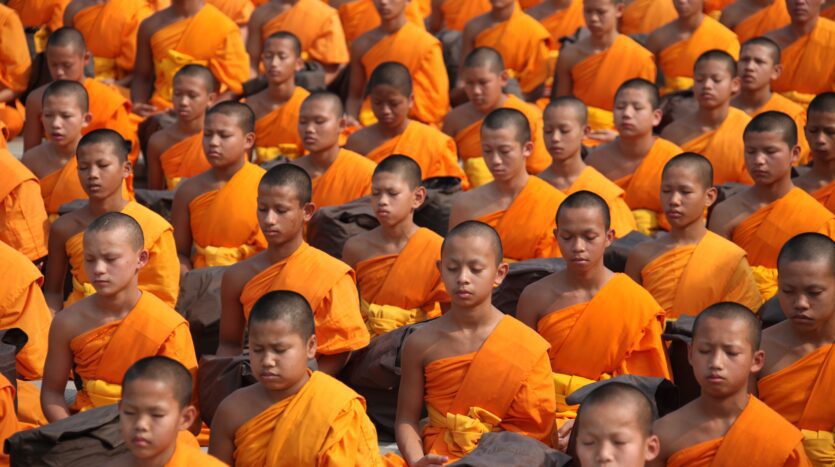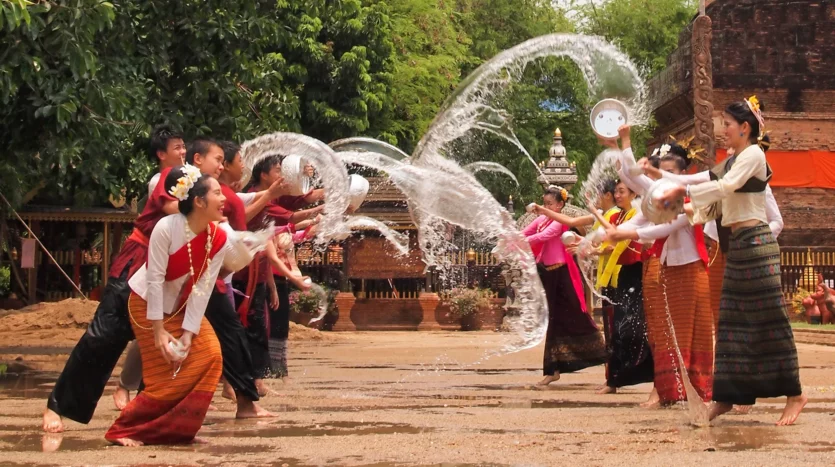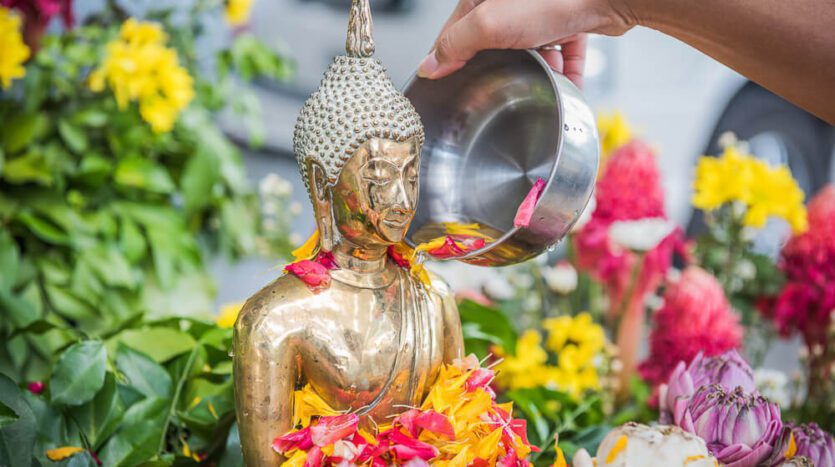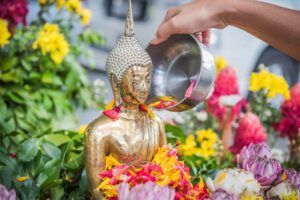The Origins of Songkran – Thai New Year
Songkran, also known as the Thai New Year, is a popular festival celebrated in Thailand and other Southeast Asian countries. The festival is traditionally observed between April 13 and 15, but some regions may celebrate it for a longer duration. Songkran is a significant event in Thailand and is recognized as a public holiday, where people engage in various activities, including splashing water and offering food to Buddhist monks.
The origins of Songkran can be traced back to ancient times, when the festival was celebrated as a way to mark the end of the dry season and the start of the monsoon season. The word Songkran is derived from the Sanskrit word “Sankranti,” which means “to move forward.” This is because the festival marks the sun’s entry into the zodiac sign of Aries, signifying the beginning of the new astrological year.
The festival has strong roots in Buddhist traditions, as many Thai people are Buddhist. During Songkran, people visit temples to offer food, flowers, and other offerings to the monks. The festival is also an occasion to show respect to elders, seek forgiveness, and make offerings to ancestors.
In Thailand, Songkran is often associated with the tradition of water splashing. The custom originated from the ritual of pouring water on Buddha statues as a sign of respect and purification. Over time, the tradition evolved into a playful water fight, where people use water guns, buckets, and hoses to splash water on each other. The water splashing is also believed to symbolize the washing away of sins and bad luck.
Another important aspect of Songkran is the creation of sand pagodas, which are built on temple grounds and along roadsides. These pagodas are often decorated with flowers, candles, and incense sticks, and are believed to bring good luck and prosperity. The building of sand pagodas is a way of making merit and showing gratitude for blessings received.
Songkran is also a time for family reunions and cultural celebrations. Many Thai people return to their hometowns to be with their families and participate in traditional activities, such as the Rod Nam Dum Hua ceremony, which involves pouring water on the hands of elders to ask for blessings.
In addition to Thailand, Songkran is also celebrated in other Southeast Asian countries, such as Myanmar, Laos, and Cambodia. Each country has its unique way of celebrating the festival, but water splashing and temple visits are common themes.
Overall, Songkran is a festival steeped in ancient traditions and cultural significance. It is a time for reflection, renewal, and celebration, and is an important event in the lives of many people in Southeast Asia





